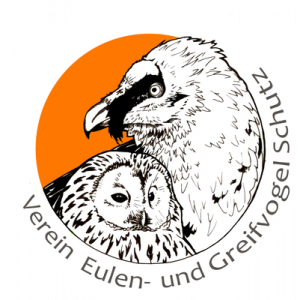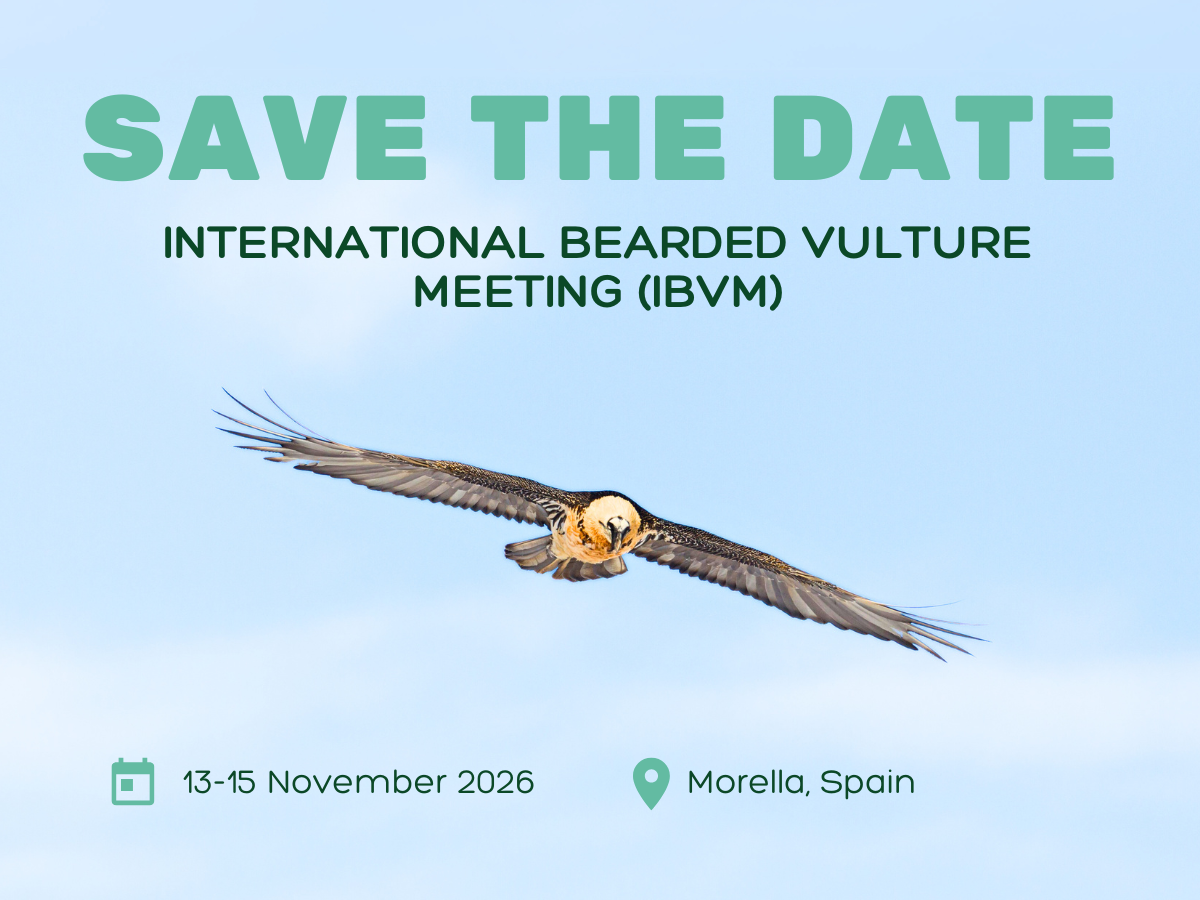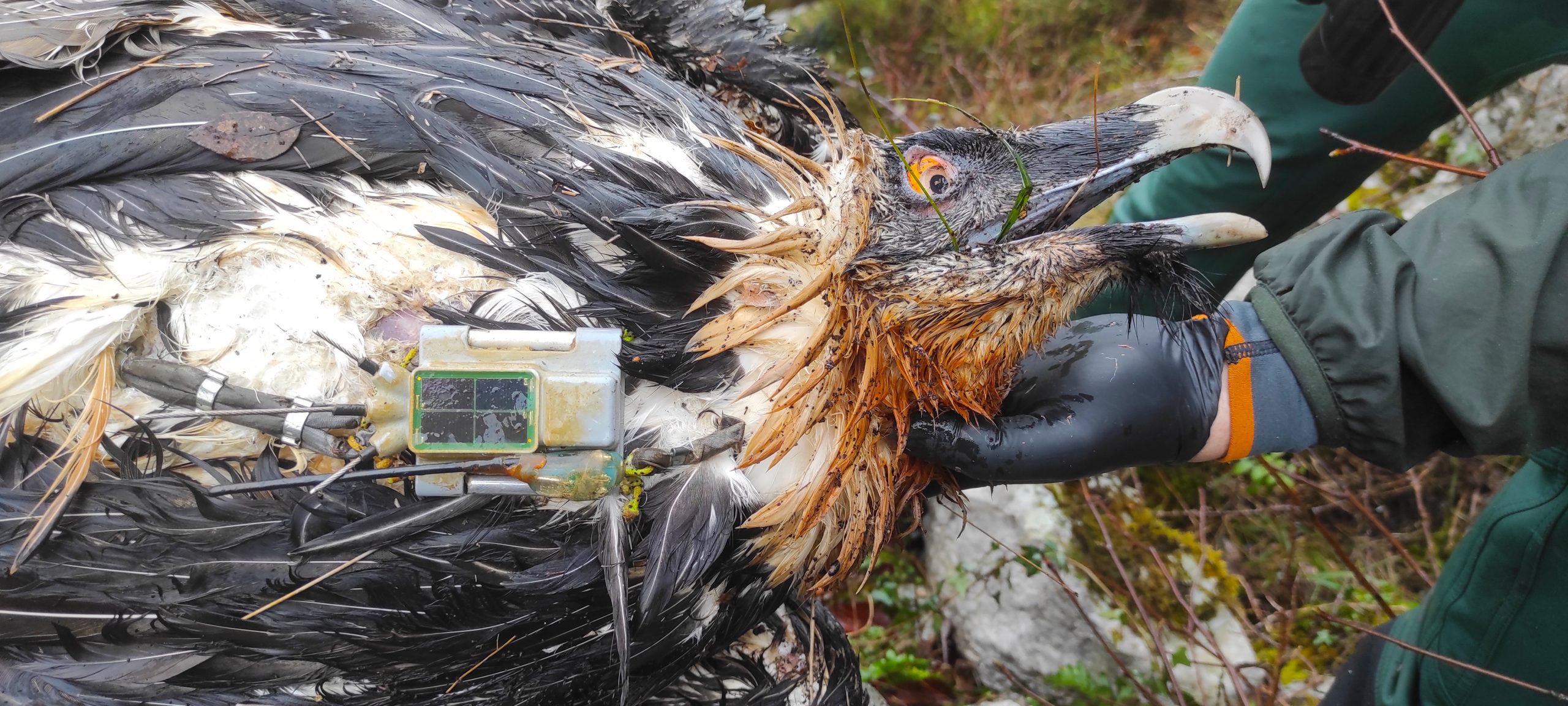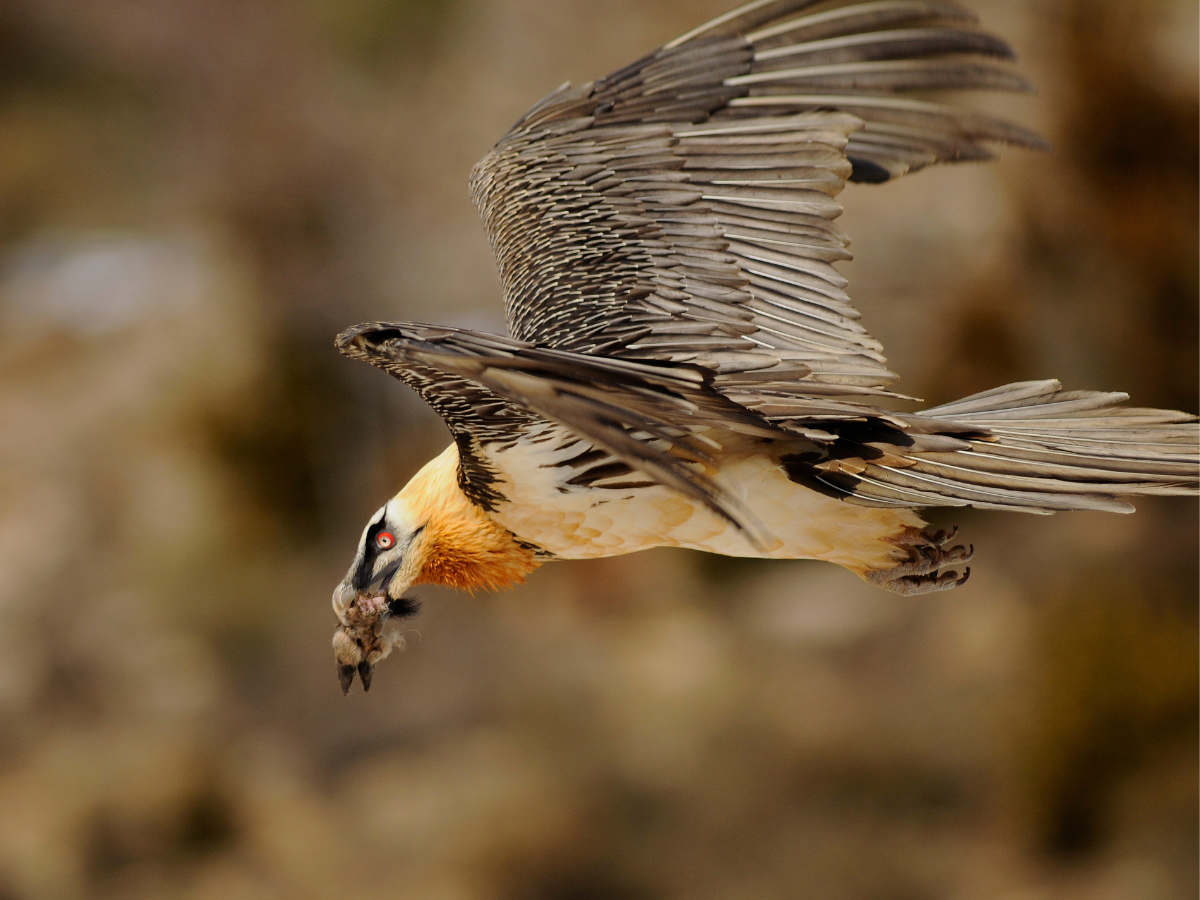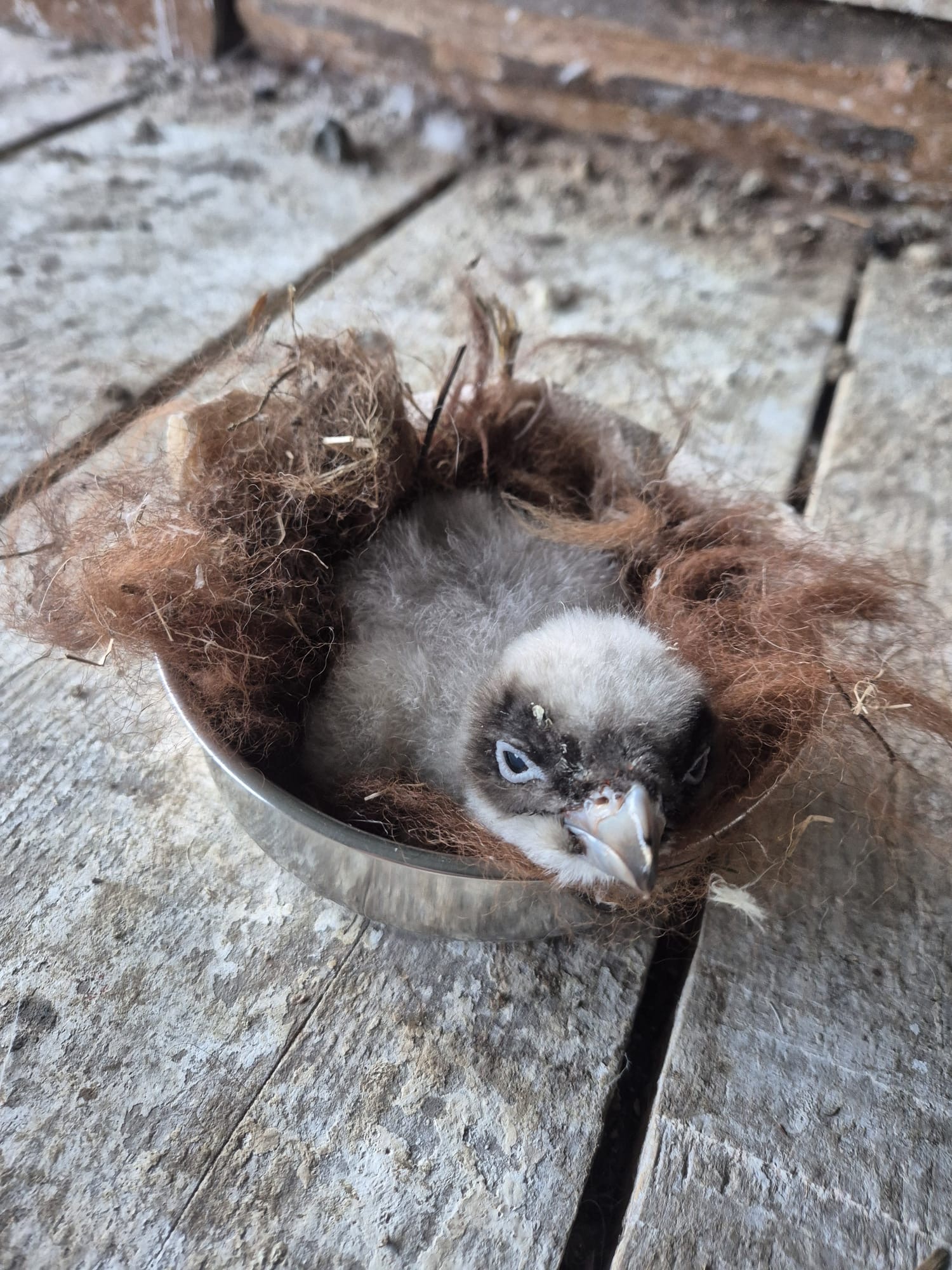After an extraordinary northern adventure, young Bearded Vulture (Gypeatus Barbatus) Vinzenz has finally returned to his alpine homeland. On 28 June 2025, the reintroduction team from LBV and Berchtesgaden National Park successfully released him back into the wild in the rugged Hagen Mountains near the Austrian border.
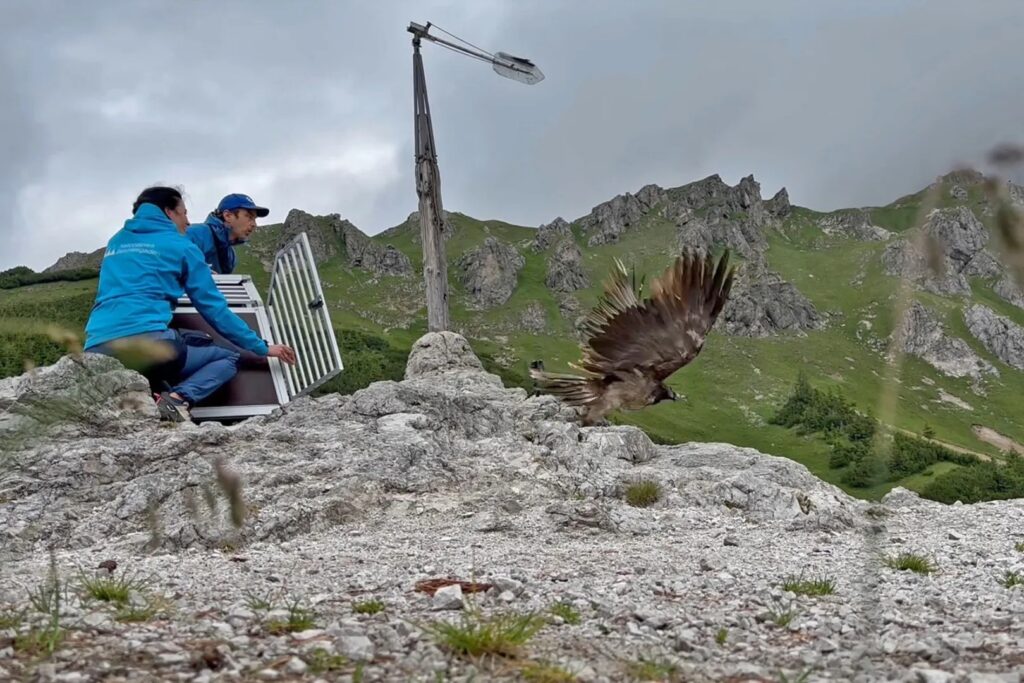
The 1,600-Kilometre journey that led to a rescue
Vinzenz had caused quite a stir earlier this summer when he unexpectedly embarked on a 1,600 km journey – travelling from the Bavarian Alps across southern Germany, through the Netherlands, and all the way to the North Sea coast near Oldenburg. In mid-June, he was found near a rural road and brought to the Rastede Wildlife Rescue Centre, a facility specialised in birds of prey.
By the time he was rescued, he had lost around ten percent of his body weight during his long journey — but fortunately, he was unharmed. At the wildlife rescue centre in Rastede, he received excellent care, including comprehensive medical examinations and screening for lead poisoning. All results came back clear, and he was gently nursed back to full strength.
Returning back home to Bavarian Alps
Once fully recovered, Vinzenz was transported back to Berchtesgaden in a vehicle equipped for wildlife, handled by a specialised animal transport service. Vinzenz still wears a GPS transmitter, which allows the team to monitor his movements in the future.
GPS transmitters are essential for these kinds of unusual detours and unexpected dangerous situations. Without a GPS, the rescue of Vinzenz would not have been possible. Maps following the movements of Vinzenz are also available online for the public, in case you want to keep an eye on him yourself!
At the release site, after opening the doors, it took only a few seconds for Vinzenz to leave the box on his own and swing unerringly into the air in his familiar alpine surroundings.
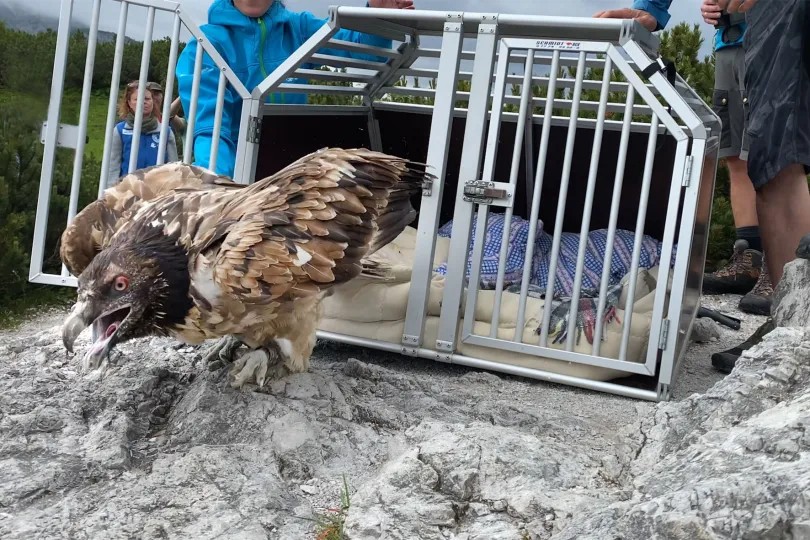
More good news from Berchtesgaden
Adding to the successful rescue and release, the young female Bearded Vulture Luisa, released in late May, also reached an important milestone: she took her first flight on 22 June, launching herself from her rocky ledge into the Berchtesgaden sky.
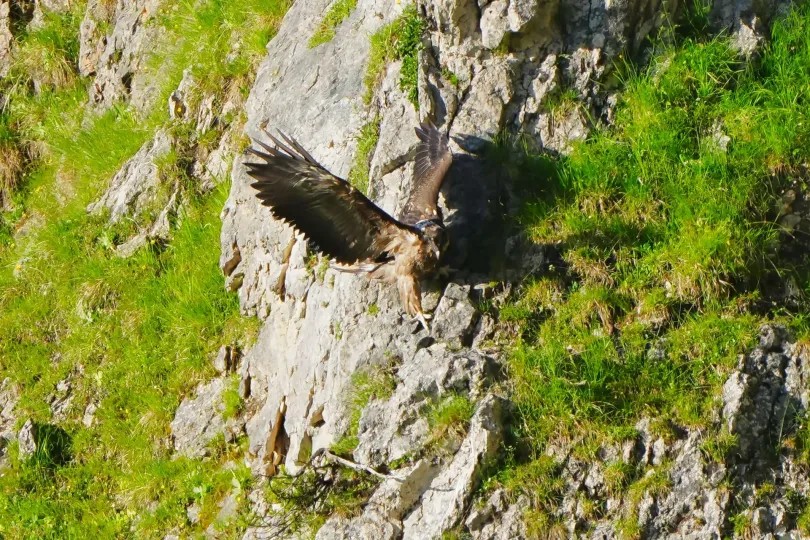
Unlike her fellow juvenile Generl, who took off an exceptional ten days earlier for her maiden flight, Luisa took her time, carefully strengthening her wings and practicing flapping before finally taking to the skies. Her first flight was a steep and impressive glide, ending with a rather bumpy but safe landing in the meadow just below the release site. Project staff suspect that Luisa was encouraged not only by Generl’s earlier training flights but also by the presence of Nepomuk, a male Bearded Vulture released in 2023.
He made a timely visit to the hacking site just a day before Luisa’s flight and remained in the area for several days, peacefully observing and interacting with the young birds. Nepomuk even chased away the resident pair of Golden Eagles from the area, which probably gave the juveniles a bit more security during this crucial phase of their development.
The project team is hopeful that both Luisa and Generl will continue learning from Nepomuk, picking up valuable flying and survival skills as they grow more confident navigating their new alpine home.
Bearded Vulture reintroduction in the Alps
The species was driven to extinction in the Alps during the 20th Century, and to bring them back, pioneers from all Alpine countries initiated the reintroduction project in the 1970s. The first birds were released in 1986 at Hohe Tauern National Park (Austria), and in 1997 the first breeding pair successfully raised a chick in the wild in France. This reintroduction project has sparked the imagination and gathered the support of many stakeholders across the Alpine chain and is considered one of the best wildlife comeback stories of all time! With the Bartgeier-Projekt, Germany has become the fifth country to join this successful reintroduction project.





